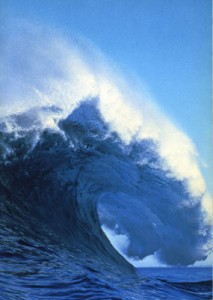
For all you horn-headed stat geeks out there, Cosmo Lee has compiled some fascinating numbers that you can read about in detail at his Invisible Oranges site. In a nutshell, in 1986 (which Lee uses as a baseline), 458 full-length metal releases came out. Assuming you had wanted to, you could have listened to all of them at the rate of 38 a month. Last year, there were almost 5,000 full-length metal releases. You’d have had to listen to more than 400 albums a month to cover all of them. And that’s not counting demos — there were more than 4,000 of them released last year.
We can guess about why this flood of metal has built to tsunami-like proportions over the last 23 years. For example, advances in technology have made DIY digital recording much easier and cheaper, and the netz have made it vastly easier for bands to get their music out into the world (regardless of whether the music is worth a shit or not).
None of this means those thousands of metal bands releasing new music every year are making any more money than the 458 who released albums in 1986. In fact, I wouldn’t be shocked if those 458 metal releases generated more total sales (in constant dollars) than the almost 5,000 released last year. Sure, the population has grown since then (in the U.S., from about 240 million in ’86 to about 304 million in ’08). On the other hand, file-sharing and downloads have just about succeeded in putting a stake through the heart of CD sales.
One thing is for sure: The flood of metal has populated every metal micro-genre with lots of choices and has made it increasingly difficult to separate the wheat from the chaff if you’re a listener. As Lee astutely observes in his post:
Such multiplicity means that consensus is likely impossible to reach nowadays. Year-end lists show much less overlap because people have many more choices. . . . In the past, people had limited, overlapping access to information — the same few TV channels, record stores, and so on. Now technology has blasted everything wide open. The only year-end list that matters now is yours.
